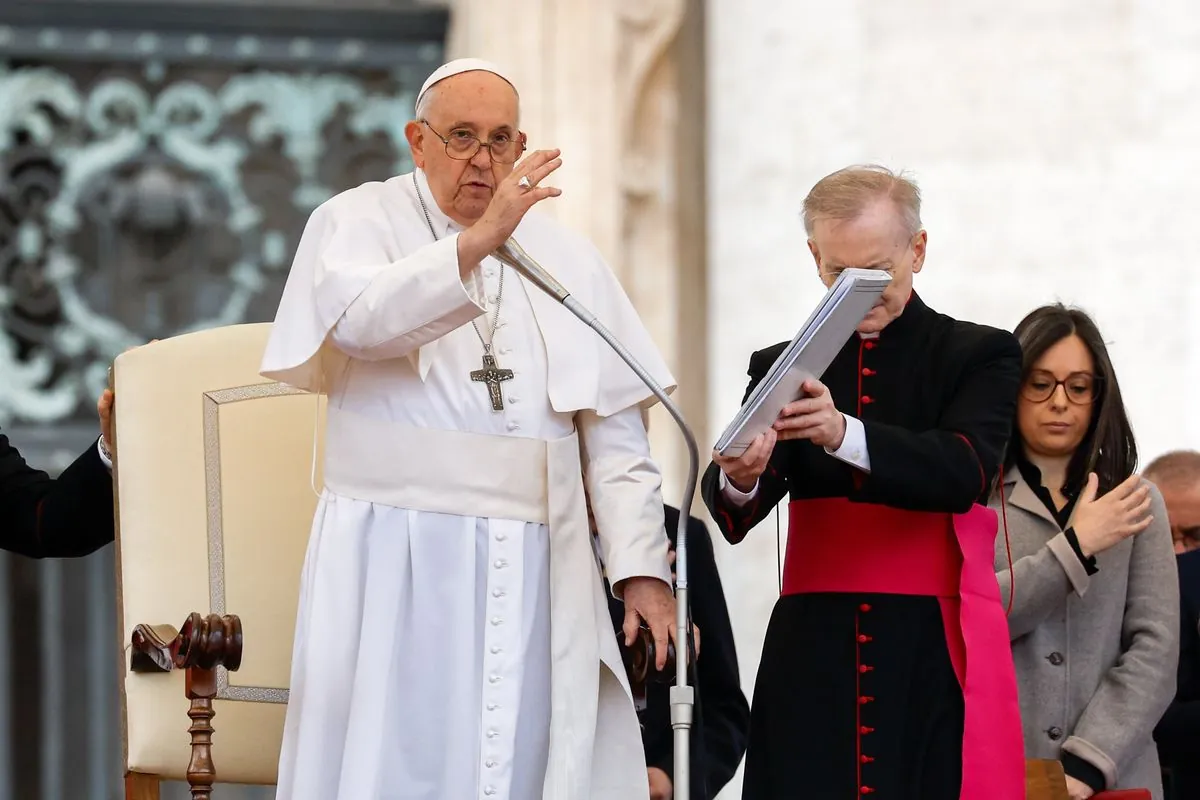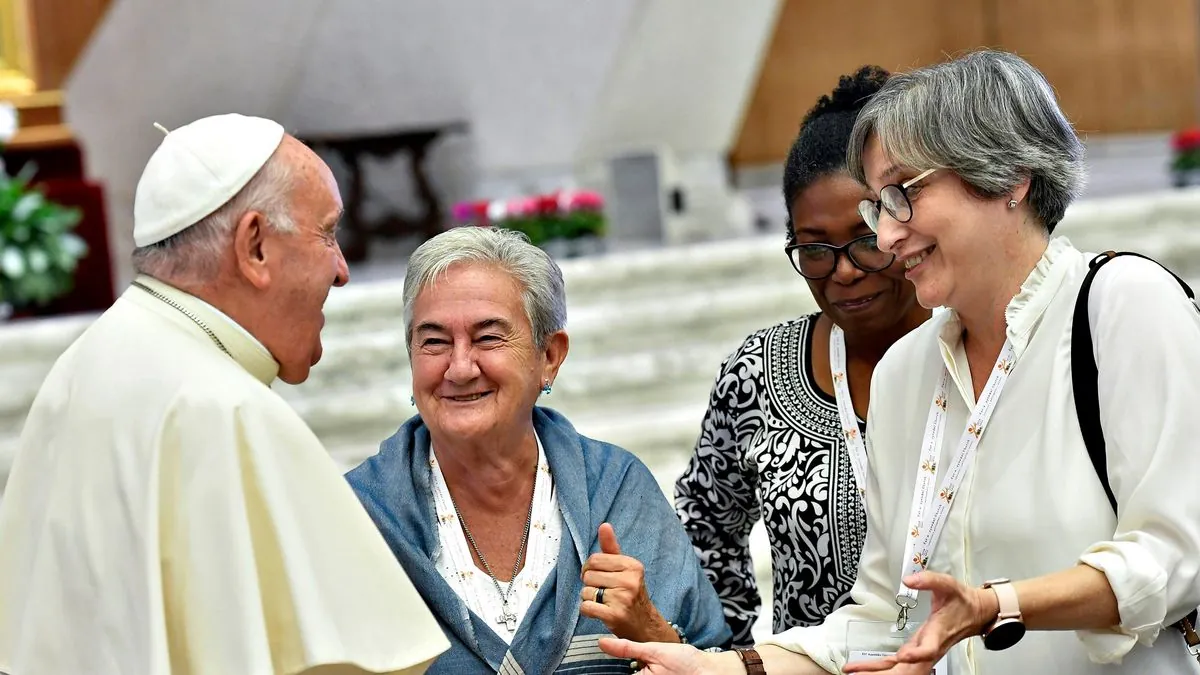Vatican Synod 2024: Balancing Tradition and Change in Catholic Church
Pope Francis to open month-long Catholic summit, addressing controversial issues. With increased lay participation, the synod aims to navigate church reforms while managing expectations for immediate change.

On October 4, 2024, Pope Francis will inaugurate a month-long Catholic summit at the Vatican, bringing together church leaders and lay people from over 110 nations. This gathering, known as a synod, marks a significant moment in the ongoing dialogue within the Catholic Church about potential reforms and doctrinal changes.
The synod, established by Pope Paul VI in 1965, has evolved over time to become a crucial platform for addressing contemporary issues facing the Church. This year's assembly is particularly noteworthy as it continues the trend of increased lay participation, a hallmark of Pope Francis' papacy.
Among the 368 voting members are nearly 60 women, reflecting the historic change introduced in the 2023 synod when women were first granted voting rights. This move towards greater inclusivity aligns with the Pope's efforts to modernize certain aspects of Church governance while maintaining its core doctrines.

The 2024 synod will tackle several contentious topics, including the possibility of women's ordination and blessings for same-sex couples. However, these issues have been assigned to study groups that will report back to the Pope in mid-2025, potentially delaying any immediate decisions.
This approach has led to mixed reactions within the Catholic community. While it has seemingly reduced vocal opposition from conservative factions, it has also frustrated advocacy groups hoping for more rapid change. Marianne Duddy-Burke, executive director of DignityUSA, expressed disappointment, stating that "any hope of timely attention to the real crises LGBTQ+ people are experiencing has been crushed."
Similarly, Anne Barrett Doyle from BishopAccountability.org voiced concerns about the synod's relevance to addressing clergy sex abuse issues, highlighting the ongoing challenges the Church faces in reconciling its past with its future direction.
The synod's final document is scheduled for a vote on October 26, 2024. Following this, Pope Francis will decide whether to issue his own text, potentially including doctrinal changes, after receiving the study group reports in 2025.
As the Catholic Church, with its 1.3 billion members worldwide, navigates these complex discussions, it's worth noting that synods have historically been consultative rather than legislative bodies. This fact, combined with the deliberate pace of the process, underscores the delicate balance the Church is trying to strike between tradition and change.
The outcome of this synod could have far-reaching implications for the future of Catholicism, potentially shaping the Church's stance on key social issues for years to come. As the world watches, the Vatican continues its centuries-old tradition of careful deliberation, adapting to modern challenges while striving to maintain its foundational principles.
"Many people, including participants in this synod, have expressed their doubts as to whether anything is going to be achieved"
This statement reflects the tension between hope for change and the reality of the Church's methodical approach to reform. As the synod unfolds, it will test the Catholic Church's ability to address contemporary issues while preserving its traditional values, a challenge that has defined much of its 2000-year history.


































